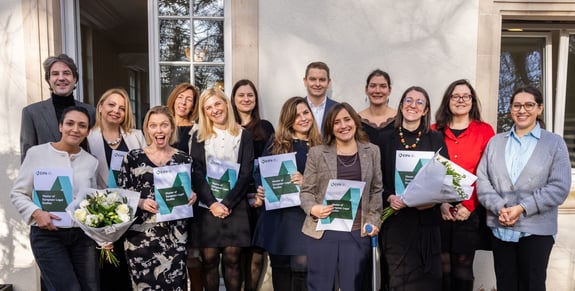

Structure of the programme
The Master studies are structured in the form of a 2-year programme. The first year provides the students with an introduction to the field of European studies (introduction to European geopolitics, history of the process of European integration, etc.). On that basis, the legal dimension of the process of European integration is progressively developed through substantial courses on the constitutional and legal system of the EU (institutional law, EU decision-making procedures, judicial system of the EU, etc.), the European Internal Market and the fundamental aspects of European economic law (competition law, EU company and tax law, etc.).
In the second academic year, after considering several other fundamental aspects within the legal core of the EU, and which originated as flanking policies to the Internal Market (intellectual property law, consumer protection law, environmental law, etc), attention will shift to the legal acquis already existing in other areas, including common foreign and security policy, the area of justice, freedom and security and human rights protection at EU level. The practical implementation of European law both at the European and national level, will also feature in this second year. Students will conclude this second year and the Master programme with the writing of a Master thesis.
"The MELS offers a flexible methodology which adapts to the needs of any professional willing to acquire a comprehensive expertise in the EU Institutions and in Union law."
Almudena Fuertes Fernández
Coordinator at the Legal Service of the Council of the European Union in Brussels
Examinations
Students are required to sit examinations at the end of each semester (online). Some exams may be replaced by other interim course work. Successful completion of the programme will also require each student to write – under supervision of a tutor chosen by them from among the teaching faculty – a Master thesis on a topic of their choice, which will be subject to the tutor’s prior approval.
Alumni
After graduating, students of the Master of European Legal Studies will have the opportunity to continue exchanging views and professional experiences on European law amongst each other and with EIPA itself by means of the Master alumni network.
Curriculum:
First academic year
First semester
(September 2026 - January 2027)
Second semester
(February 2027 - June 2027)
|
Institutional Law and Decision-Making Processes of the EU
|
|
Procedural Law
European Integration
|
|
The Fundamental Freedoms
|
|
European Economic Law
EU Enlargement and Neighbourhood Policy
|
Curriculum:
Second academic year
First semester
(September 2027 - January 2028)
|
The Diversification of EU Sectoral Law
|
|
Implementing EU Law
Fundamental Rights
|
Second semester
(January 2028 - June 2028)
|
Area of Freedom, Security and Justice
|
|
EU Citizenship and EU External Relations
|
